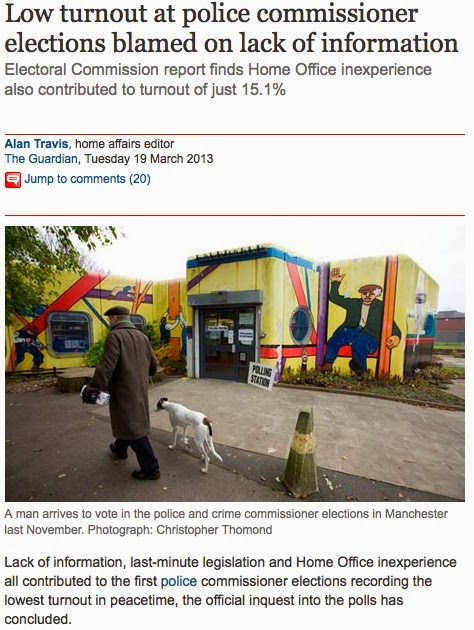and...
LIBERTARIAN v AUTHORITARIAN
Two further terms you can consider; if you take the political compass.org test, you'll find you're placed not just on a left/right spectrum but also an authoritarian/libertarian spectrum. (Source for quotes below; you can find an alternative explanation here)
Authoritarian:The state, as the highest expression of institutionalized structure, supersedes the individual and makes it possible for the individual to acquire and develop a stable and harmonious life Mass communication, then, supports the state and the government in power so that total society may advance and the state may be viable and attain its objectives.
The State (the elite that runs the state) directs the citizenry, which is not considered competent and interested enough to make critical political decisions. One man or an elite group is placed in a leadership role. As the group or person controls society generally it (or he or she) also controls the mass media since they are recognized as vital instruments of social control.
The mass media, under authoritarianism, are educators and propagandists by which the power elite exercise social control. Generally the media are privately owned, although the leader or his elite group may own units in the total communication system. A basic: assumption a person engaged in journalism is so engaged as a special privilege granted by the national leadership. He, therefore, owes an obligation to the leadership.
This press concept has formed and now forms, the basis for many media systems of the world. The mass media, under authoritarianism, have only as much freedom as the national leadership at any particular time is willing to permit.
Libertarian:The libertarian press concept is generally traced back to England and the American colonies of the seventeenth century. Giving rise to the libertarian press theory was the philosophy that looked upon man as a rational animal with inherent natural rights. One of these rights was the right to pursue truth, and potential interferes (kings, governors et al) would (or should) be restrained.
Exponents of this press movement during the seventeenth century, and the 200 years which followed, included Milton, Locke, Erskine, Jefferson, and John Stuart Mill. Individual liberties were stressed by these philosophers, along with a basic trust in the people to take intelligent decisions (generally) if a climate of free expression existed.
In theory, a libertarian press functions to present the truth, however splintered it may be in a pluralism of voices. It is impossible to do this if it is controlled by some authority outside itself. Through the years many new ideas were grafted on to early press libetarianism: One of these, for example, was the general acceptance of a kind of obligation to keep the public abreast of governmental activities, or being a kind of fourth branch of government supplementing the executive, legislative and judicial branches.
This was actually a rather recent concept, having been grafted on to the original libertarian theory. There flows a basic faith, shown by libertarian advocates that a free press- working in a laissez faire, unfettered situation-will naturally result in a pluralism of information and viewpoints necessary in a democratic society.
Any more suggestions? Add as a comment...



